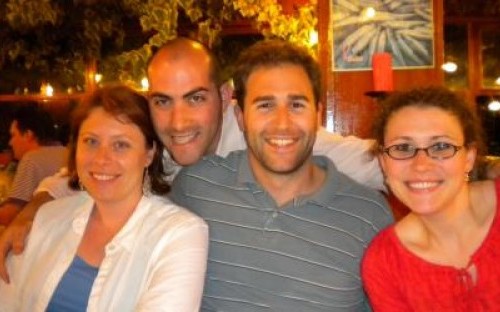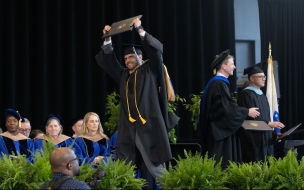Susi, who was looking for a career change after working in litigation support for a number of years, had applied to several other business schools: Wake Forest (where he did his first degree), Georgetown, and Kogod School of Business at the American University amongst others.
George Washington University was not his first choice initially, but after he had been accepted and attended an orientation day at the school, Susi cancelled all his other applications and declined offers from Wake Forest and Kogod.
The atmosphere on the day was “magnetic”, remembers Susi, who is currently doing a summer internship in continuity planning in the Federal Judicial Centre in D.C. before embarking on his second year at George Washington.
Part of the attraction lay in the relatively small number of MBAs at the business school (200 were enrolled full-time in 2008, compared to Harvard's 900), which makes the relationship between staff, students and the school administration very personal. “The famous schools are proud of their huge alumni network,” says Susi, “But it is much more useful to really know a small number of people well than have a massive network of impersonal connections.” Having a proper relationship with the staff and students he would study with was crucial, he says.
The flexibility of GWSB’s MBA syllabus was also attractive to the Communications and Sociology graduate. “I have always been interested in history and I love to understand how people think and want to work as an executive after I graduate,” says Susi. He admits that he isn’t a big fan of numbers. George Washington allows him to do courses in leadership, corporate responsibility and history without having to struggle through accounting and finance.
The GW School of Business also seemed unique in the way it responds to feedback from students. At the orientation event, Susi discovered that student opinion is highly valued at the school: “This allows for a much more dynamic curriculum.”
The issues of ethics and global corporate responsibility were raised by last year's students, before the financial crisis made most business schools jump on the same bandwagon, argues Susi, who is now vice president of the school's MBA association. He was excited by the chance to get actively involved in shaping his school. “For people who want a rigid syllabus, some of the bigger schools are probably the better place. But since I wanted to be more creative and more critical, D.C. seemed like the place to be,” he concludes.
And then there is the school's special location. Obama has dubbed Washington D.C. the new Wall Street, argues Susi. “We have professors giving lectures who have a day job at the World Bank,” which is located a few blocks away from the school campus. It makes what is taught more relevant to what is happening on the world stage, he adds.
Washington is not all about politics though. “Even after living in this city for five years, I am constantly discovering new interesting corners, random little social events or free movie nights,” says Susi. In every respect, being at the GW School of Business feels to him like being on the cutting edge of world events: “I was hoping that it would be like this when I enrolled, and my experiences in the first year have exceeded my expectations.”
RECAPTHA :
dc
e3
92
8a







